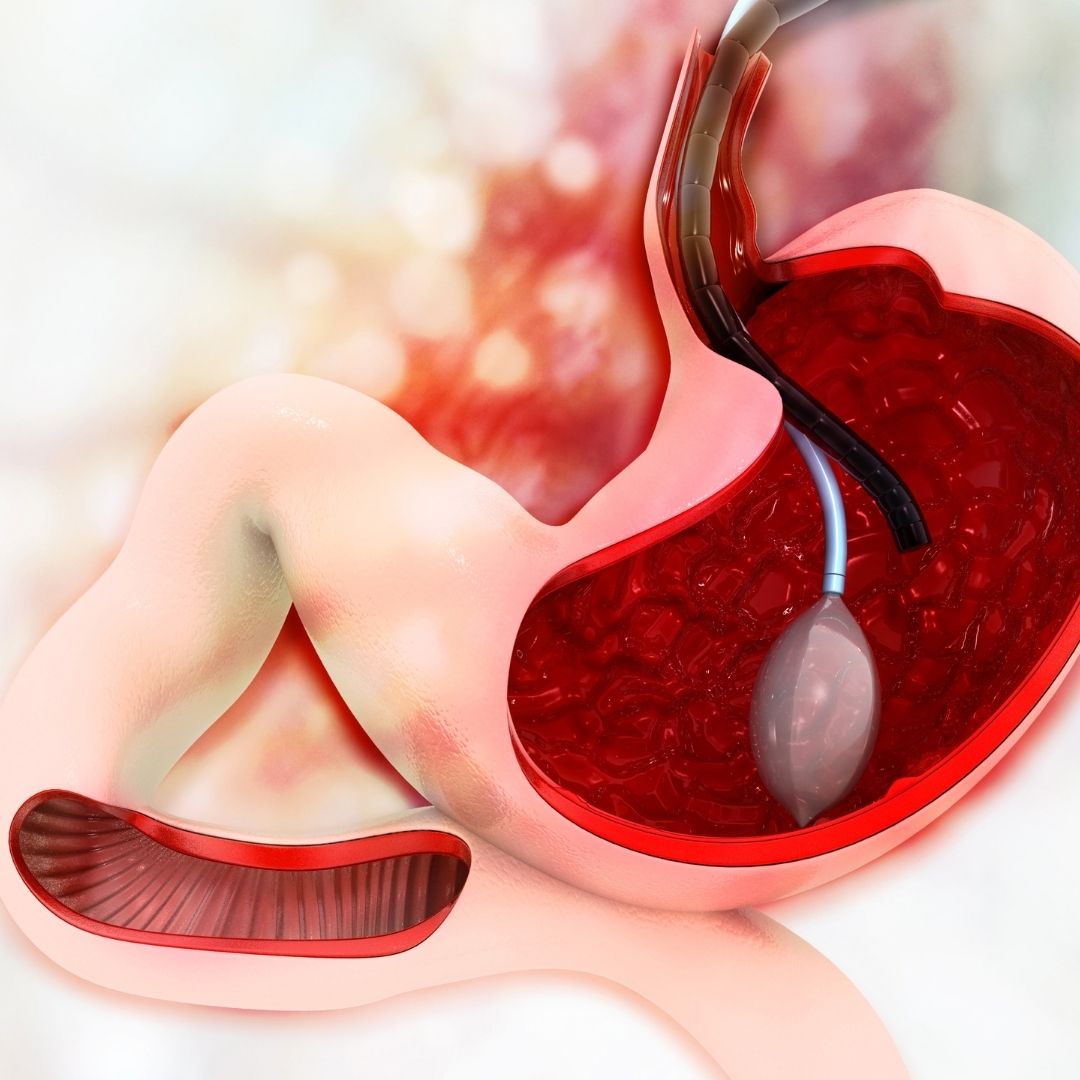
How Is The Life After Bariatric Surgery?
Life changes drastically after bariatric surgery. However, bariatric surgery is not a magical cure for obesity, but more a tool to help you lose weight to live a healthier, longer, and more fulfilling life. When you leave the hospital, you will receive proper guidelines for life after bariatric surgery in Turkey that you should follow. Success depends on your ability to follow guidelines for diet, exercise, and lifestyle changes.
The first weeks after bariatric surgery are a little different and it would be good to plan them in advance. Living with bariatric surgery involves making changes to daily tasks, such as work or child care, to facilitate normal healing without complications. It is essential to be aware of the potential physical limitations and carefully evaluate the time required for recovery.
Medications After Bariatric Surgery
After bariatric surgery, your daily routine will include short- and long-term medications. These include:
Omeprazole reduces the risk of occurring ulcers in the digestive tract. Expect to take this medication for six months after surgery or indefinitely, as directed by your bariatric surgery team. Ursodiol reduces the risk of gallstones during the postsurgical period of rapid weight loss. Expect to take it for six months after bariatric surgery. This medication is not needed for patients who don’t have gallbladder problems.
Capsule, chewable, and liquid medications can be taken immediately after the operation, but tablet medications need to be broken up or crushed for the first three months. This prevents drugs from getting stuck in the digestive tract or not being fully absorbed. Extended-release medications cannot be broken up, so Healthy Türkiye’s pharmacist will recommend alternatives prior to surgery. After bariatric surgery in Turkey, you can resume taking your usual medicines for other conditions, unless our pharmacist advised otherwise. You should check in with your primary care provider and other specialists regularly after surgery, as rapid weight loss can necessitate frequent adjustments to medications, such as those for high blood pressure and diabetes.
Also after bariatric surgery, you should avoid nonsteroidal anti-inflammatory drugs (NSAIDs), such as aspirin, ibuprofen (Motrin, Advil), and naproxen (Aleve). NSAIDs increase the risk of developing stomach ulcers. Gastric bypass patients should avoid these medications indefinitely. If you had a sleeve gastrectomy surgery in Turkey, you might be able to resume taking these medications after the sleeve heals (about three months after surgery), but consult your healthcare team first.

Vitamin and Mineral Supplements After Bariatric Surgery
To prevent nutrient deficiencies, bariatric surgery patients need to take several vitamin and mineral supplements daily:
Multivitamins: After bariatric surgery, taking a daily bariatric-specific multivitamin helps compensate for nutritional deficits. Bariatric-specific multivitamins include enough doses of all necessary micronutrients, simplifying your postsurgical supplement regimen.
Calcium: It is recommended to take 1,000 to 1,500 milligrams of calcium daily to prevent calcium deficiency and bone loss. Calcium citrate is the preferred form usually, to enhance absorption, and reach the daily total by taking two or three divided doses over the course of the day. For example, take a 500-mg chewable or capsule supplement two or three times a day.
Vitamin D3: This is both the multivitamin and calcium supplement recommended after surgery.
Diet After Bariatric Surgery in Turkey
After bariatric surgery, the way your stomach works changes. Your meals might look different than before undergoing surgery. You have to be more conscious of what you are putting in it. Bariatric surgery does not mean you can eat a poor diet and still lose weight. A patient needs to be dedicated to eating a well-balanced diet. That means having a colorful plate of fruits and veggies, lean meats, fish, and healthy fats. Dietary guidelines seek to provide balanced meals while limiting calories, to prevent nutritional deficiencies and preserve muscle tissue. Each patient tolerates foods differently, therefore keep this in mind when considering suggestions. Healthy Türkiye dietitian specialists will be pleased to be with you for a specially prepared diet.
Your daily caloric intake should be between 500 and 700 calories for at least the first 12 months after bariatric surgery in Turkey, not exceeding 1,000 calories a day. Follow a special-designed dietary regimen that is high in protein and vegetables and low in carbohydrates and sugars. Your aim should be to get at least 60 to 80 grams of protein per day. High-protein foods include eggs, meats, seafood (including tuna and other fish), poultry, tofu, and other soy products, milk, cheese, and Turkish yogurt. Key to successful results include keeping a daily record of portions and calories as well as following up with a dietitian regularly. Here are some tips for this:
Eat slowly, take small bites, and chew fully.
Avoid rice, bread, raw vegetables, fresh fruits, and meats that aren’t easy to chew, such as pork and steak, ground meats may be easier to tolerate. You should eat balanced meals with small portions. In the initial period after surgery, you may only be able to tolerate one to two tablespoons of food at a time.
Avoid the use of drinking straws, carbonated beverages, chewing gum, and ice. These can introduce excess air into your surgically created pouch and cause discomfort.
Staying hydrated is important, so drink 1.5 to 2 liters of fluids daily. Also, avoid sugar, sugary foods and beverages, and fruit juices.
Alcoholic beverages will have a stronger effect than in advance and should be avoided.
Over time, increase the variety of foods in your diet. Foods that are poorly tolerated initially such as red meats, chicken, bread, and high-fiber fruits and vegetables, will become easier over time.

Pregnancy After Bariatric Surgery in Turkey
On the basis of studies, 70%-80% of women, who have failed to get pregnant before surgery, can become pregnant after bariatric surgery in Turkey because obesity is one of the reasons for infertility.
Pregnancy risks after bariatric surgery are lower because obesity increases the risks of pregnancy and when the weight falls, the risks are lower. Living with bariatric surgery involves certain considerations regarding pregnancy. It is not recommended to conceive within the first 18 months after the operation. During this initial year, your calorie intake is low, and your body may not receive sufficient nutrients from food due to the effects of quick weight loss, which can be stressful for both you and a potential baby. The optimal time for pregnancy is when weight loss has ceased, and your weight is stabilized. Before planning a pregnancy, it is advisable to consult with a nutritionist and undergo blood tests to assess and ensure optimal nutritional status while navigating life with bariatric surgery.
Absorption of oral contraceptives may not be effective after surgery, and therefore a sufficient concentration of the active ingredient is not achieved in the blood. Therefore, it is recommended to use alternative options such as transdermal patches or intrauterine devices.
Exercise After Bariatric Surgery in Turkey
It’s recommended to exercise 30 to 45 minutes a day, performing an aerobic activity (cardio) three to five times a week. We recommend starting out by walking for five minutes in the morning and five minutes in the afternoon. Steadily increase these intervals by five minutes, as tolerated, until you’re walking at least 15–20 minutes twice a day. After, you can add variety to your plan, such as with light jogging, swimming, or using a stationary bike.
Anytime you seem to reach a plateau, revise your regimen by trying new and hard activities, adding more strenuous exercises, or increasing the duration of activities. Alternating between walking and jogging in two to five-minute intervals can help you break through a plateau and burn fat. For more of a challenge, can try alternating between jogging and sprinting. Also, resistance training builds muscle and burns calories and this helps with maintaining weight loss since muscle tissue uses more calories at rest than body fat. Start workouts using light weights, such as two to five pounds, and do three sets of 10 repetitions for each exercise. As you feel your strength increasing, you can use more weight.
Besides, exercise helps to:
It reduces the risk of dying prematurely from heart disease or other comorbidities.
It reduces the risk of developing diabetes, high blood pressure, and colon cancer.
It reduces blood pressure in people who already have high blood pressure.
It builds and maintains healthy bones, muscles, and joints.
It reduces feelings of depression and anxiety.
It controls weight.
Follow-up After Bariatric Surgery
In the first year after surgery, the frequency of visits to the doctor and blood work will be determined by the operating surgeon based on the specific operation and the patient. Patients can always contact Healthy Türkiye’s dietitian or surgeon by e-mail or phone as long as needed. The blood work should be made at least twice in the first year, for example at the 6-month and 12-month mark, later once a year check the balance of vitamins and minerals.
Necessary analyzes 6-month after surgery:
Full blood count
Glucose, HbA1c (for diabetics)
Albumin, total protein
Ferritin, iron
Folate
Vitamin B12, vitamin D3 25 (OH), folic acid
Ionized calcium iCa
Necessary analyses once a year, starting from 12 months after surgery:
Full blood count
Glucose, HbA1c (for diabetics)
Albumin, total protein
Ferritin, iron
Folate
Vitamin B12, vitamin D3 25 (OH), folic acid
Parathormone (PTH), Ca, iCa, Na, K
Potassium
Sodium
Kidney function (creatinine, urea)
Glychemoglobin HbA1c
Ten Years After Bariatric Surgery
Year One: Life After Bariatric Surgery
In the first year after bariatric surgery, weight typically comes off regardless of what you eat or how much you eat, there is the reason why it’s called the “honeymoon” phase. It is still important to follow healthy guidelines because they will set the stage for successful weight loss when the honeymoon period is over and it becomes more difficult to lose weight.
Year Two: Life After Bariatric Surgery
In the second year, weight loss begins to slow down and food cravings slightly increase and your body becomes more adapted to the new stomach. With new habits in place, the second year of bariatric surgery will have a much higher chance to maintain losing weight. Portion sizes may mildly increase although they are still insignificant compared to before bariatric surgery.
Year Three: Life After Bariatric Surgery
At year three, success usually comes from patients’ environment, activity, and most importantly following the post-op diet. In order to continue moving forward into years 3 through 5, both exercise and nutrition are more important than ever. Food addiction is powerful, and it gets easier to regain weight every year.
Year Ten: Life After Bariatric Surgery
After ten years of post-op bariatric surgery, it’s absolutely critical to follow the post-op diet day after day and form an exercise routine. Patients need every day needs to be a conscious decision to eat well and be physically active. At year ten and on, continued success comes entirely on how well you maintain a healthy and stable lifestyle. Old habits are easy to return at this time as your body has fully adapted to the new stomach size and almost completely balances out the nutrient deficiencies.
Emotional Challenges After Bariatric Surgery
Preparing for bariatric surgery is a very exciting process. Many patients anticipate the resolution of debilitating health problems, look forward to increased mobility and celebrate the emergence of a brand-new body. However, bariatric surgery can also present unexpected emotional challenges and problems with spouses, partners, family, and friends.
With careful preparation and thoughtful consideration, you can avoid experiencing many of the emotional challenges that usually impact post-surgical bariatric patients. It’s also important to heighten your awareness about problematic behaviors and interpersonal issues that can occur after bariatric surgery.
Addiction Transfer
Food works as a source of pleasure, comfort, and control in our lives. Many people also turn to food in order to fill emotional voids, especially in times of stress and this dependence on food can be an addictive behavior. After bariatric surgery, when food is no longer an available coping mechanism, many transfer this addiction to other unhealthy options, such as alcohol or drugs. If you think you are an emotional eater and feel yourself slipping into unhealthy consumption patterns with alcohol or drugs (including prescription drugs), you should consult with your provider or a mental health professional for evaluation.
Body Image Distortion
Bariatric patients can suffer from the same body image disorder as patients who suffer from anorexia. This disorder generally develops as a coping mechanism during years of weight gain. Prior to bariatric surgery, many patients are able to convince themselves that they really aren’t “that big.” However, after bariatric surgery, some patients continue to see themselves as they were prior to losing weight. Patients can become overly judgmental of their new bodies, focusing on all of their imperfections. In some conditions, a severe fear of regaining weight can lead to the development of anorexia if not addressed by a professional counselor.
Emotional Instability
Emotional ups and downs are very common in the first year after surgery. One biological cause of emotional instability is the female hormones in the body’s system. These hormones are stored in the fat tissue, and as the fat stores are used, these hormones are released into the bloodstream, sometimes causing emotional ups and downs. Both men and women may experience ups and downs after bariatric surgery while they get used to their new bodies, new diet regimes, and how the world responds to the “new” them. Developing a strong support system and attending monthly support group meetings will help people manage these emotions.
The Study of Life After Bariatric Surgery
A recent study conducted by a team of researchers specializing in bariatric surgery evaluated the long-term outcomes and emotional aspects of life after bariatric surgery. The study aimed to understand the psychological and emotional challenges patients may face post-surgery and how interpersonal relationships are affected. This comprehensive study found that emotional challenges, such as addiction transfer (where some patients transfer addictive behaviors from food to substances like alcohol or drugs), body image distortion, and emotional instability, can occur during the first year following surgery. It also highlighted the impact of changing roles within family and friend circles due to weight loss, potentially leading to jealousy or negativity from close ones.
Interpersonal Relationship Challenges
Each of people has an established role within the family and circle of friends. Many patients who have undergone bariatric surgery are surprised to find that their roles within these groups change. For example, a patient who was previously withdrawn and insecure may become more outgoing and confident.
You can experience a wide range of reactions from friends and family as you begin to lose weight after surgery. Most reactions will be positive and supportive, but you might also experience negativity from people close to you. Jealousy can lead friends to try sabotaging your success. If your relationships with family and friends are healthy, you will be able to work through these struggles with proper communication, but if you are in an abusive, unhealthy, or unhappy relationship you can face significant emotional challenges.
We encourage you to reach out to Healthy Türkiye’s counselor if you feel you need help coping with these challenges.
Conclusion About Life After Bariatric Surgery
A weight loss journey does not end after bariatric surgery, it involves a commitment to a lifestyle change. It is not always going to be easy and stable, but it will be rewarding. Be ready to jump into a healthy diet and strong exercise routine in your new life. Also, the foundation of successful results is a healthy mindset. Know what to expect throughout your journey, set aims, and seek support.
If you would like to know more about what to expect after weight loss surgery, contact us to set up a free consultation with Healthy Türkiye.



